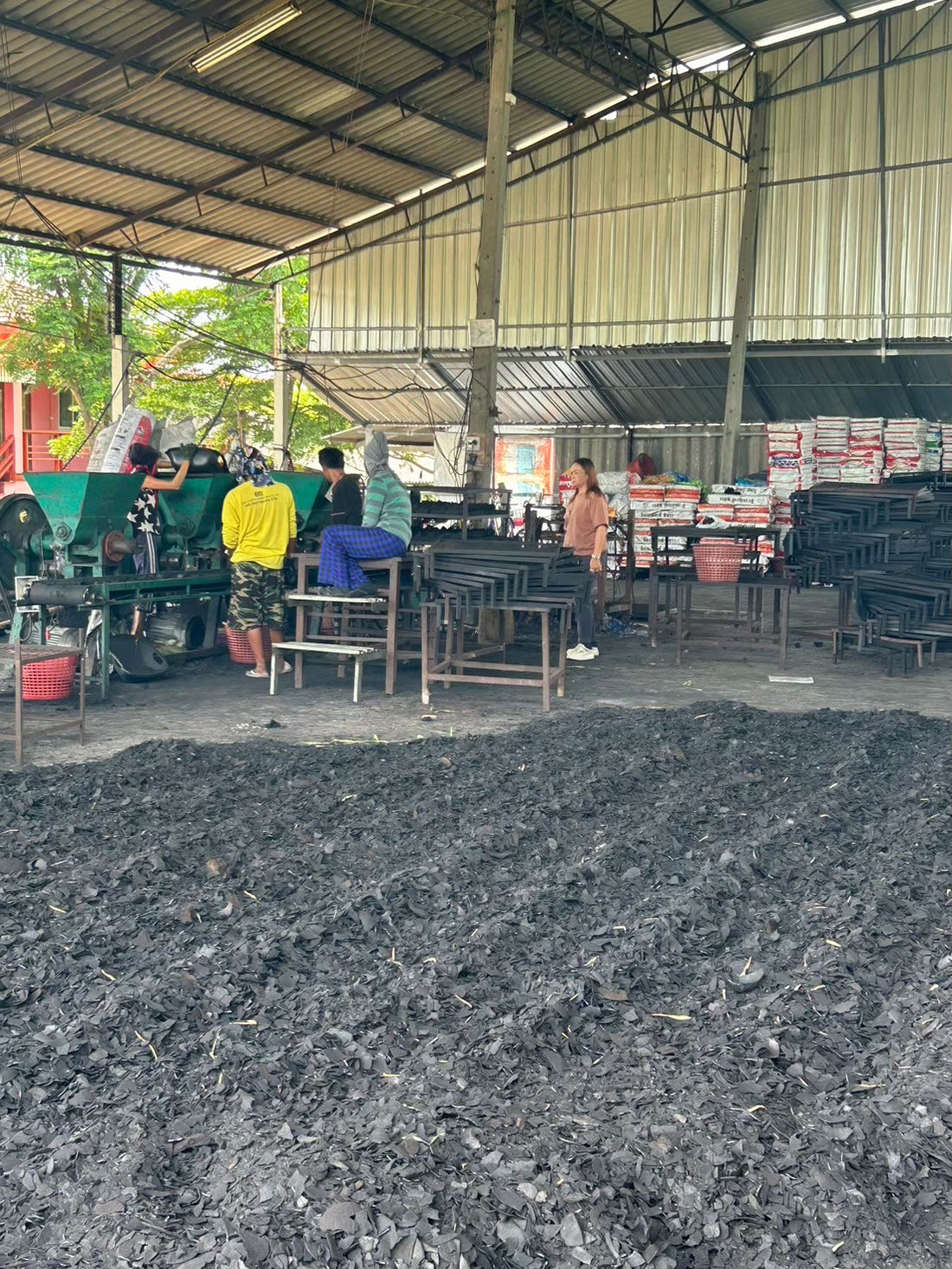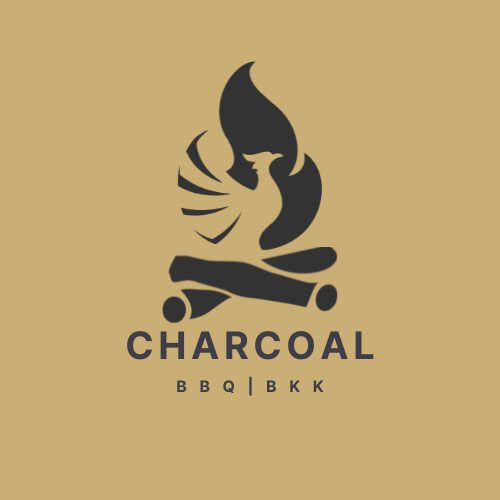
Comparing the World's Finest Charcoals: Binchotan and Coconut Shell Charcoal
Share
In the quest for the perfect charcoal, two varieties stand out for their exceptional qualities: Japan's Binchotan charcoal and our coconut shell charcoal from Pak Tho, Thailand. Both are renowned for their performance, sustainability, and unique characteristics.
This article explores the similarities and differences between these two remarkable charcoals, helping you make an informed decision for your cooking, heating, or industrial needs.
Binchotan Charcoal: The Premium Choice
Overview
- Origin: Wakayama Prefecture, Japan
- Material: Ubame oak
- Production: Traditional, labor-intensive process involving slow carbonization and rapid high-temperature firing
-
Characteristics:
- Extremely hard and dense
- High carbon content (>95%)
- Odorless and smokeless when burned
- Long-lasting, consistent heat
Advantages
- Culinary Excellence: Preferred by top chefs for grilling due to its ability to sear food perfectly without imparting flavors.
- Purity: High carbon content ensures a clean burn, preserving the natural taste of ingredients.
- Longevity: Burns for extended periods, reducing the need for frequent refueling.
Disadvantages
- Cost: Extremely expensive due to limited supply and labor-intensive production.
- Availability: Limited production quantities make it hard to source, especially outside Japan.
- Environmental Concerns: While produced sustainably, overharvesting Ubame oak could pose ecological risks if not carefully managed.
Coconut Shell Charcoal: The Sustainable Alternative
Overview
- Origin: Pak Tho District, Ratchaburi, Thailand
- Material: Recycled coconut shells
- Production: Efficient carbonization process utilizing renewable resources and supporting local communities
-
Characteristics:
- High density and calorific value
- Low smoke and odor when burned
- Long burn time
- Customizable size and shape
Advantages
- Eco-Friendly: Made from renewable coconut shells, reducing waste and preventing deforestation.
- Affordable: Cost-effective due to abundant raw materials and efficient production methods.
- Versatile: Suitable for various applications, from home cooking to industrial use.
- Community Support: Purchasing supports the livelihoods of local farmers and workers.
Disadvantages
- Heat Output: While excellent, it may have slightly lower peak temperatures compared to Binchotan.
- Cultural Prestige: Lacks the historical prestige associated with Binchotan, though it offers comparable performance.
Head-to-Head Comparison
| Feature | Binchotan Charcoal | Coconut Shell Charcoal |
|---|---|---|
| Material Source | Ubame oak (limited hardwood) | Coconut shells (renewable byproduct) |
| Environmental Impact | Sustainable but limited resources | Highly sustainable and reduces waste |
| Production Method | Traditional, labor-intensive | Modern, efficient, community-based |
| Cost | Very high | Affordable |
| Heat Output | Extremely high, consistent | High, consistent |
| Burn Time | Very long | Long |
| Smoke and Odor | Minimal | Minimal |
| Availability | Limited, primarily in Japan | Widely available |
| Applications | High-end culinary, specialty uses | Versatile: cooking, heating, industrial |
| Cultural Significance | High cultural prestige | Supports local communities and economies |
Which Charcoal Is Right for You?
Choose Binchotan If:
- Budget Is Not a Constraint: You're willing to invest in the most premium charcoal available.
- Culinary Precision: You're a professional chef or culinary enthusiast seeking the highest quality for grilling.
- Cultural Experience: You value the traditional craftsmanship and heritage associated with Binchotan.
Choose Coconut Shell Charcoal If:
- Sustainability Matters: You prefer an eco-friendly option that utilizes renewable resources.
- Affordability: You're looking for high-quality charcoal without the premium price tag.
- Versatility: You need charcoal suitable for various applications and customizable to your needs.
- Community Impact: You want your purchase to support local economies and community development.
Environmental Impact Considerations
Both charcoals offer environmental benefits over traditional wood charcoal, but coconut shell charcoal has the edge due to:
- Use of Waste Materials: Repurposes coconut shells that would otherwise be discarded.
- Preventing Deforestation: No trees are cut down, unlike even sustainably harvested wood.
- Lower Carbon Footprint: Efficient production methods result in reduced emissions.
Supporting Communities
By choosing coconut shell charcoal, you:
- Empower Local Farmers: Provide additional income through the purchase of coconut shells.
- Create Jobs: Support employment in production, quality control, and distribution.
- Promote Sustainable Development: Fund community projects in education, healthcare, and infrastructure.
Testimonials
Chefs and Home Cooks
- Sarah, Professional Chef: "I've switched to coconut shell charcoal for its consistent heat and eco-friendly nature. It performs exceptionally well in my restaurant's kitchen."
- Mark, BBQ Enthusiast: "I love how long it burns and the fact that I'm supporting a sustainable product. It's become my go-to for weekend grilling."
Conclusion
While Binchotan charcoal holds a prestigious place in the world of high-end cooking, coconut shell charcoal emerges as a formidable alternative that balances performance, sustainability, and affordability. It offers many of the benefits associated with premium charcoals while also making a positive impact on the environment and local communities.
Choosing the right charcoal depends on your specific needs, values, and budget. For most consumers and businesses seeking a high-quality, eco-friendly, and cost-effective solution, coconut shell charcoal is an excellent choice.
Experience the benefits of sustainable charcoal today. Explore our range of coconut shell charcoal products and discover how you can enjoy superior performance while supporting a greener future.
